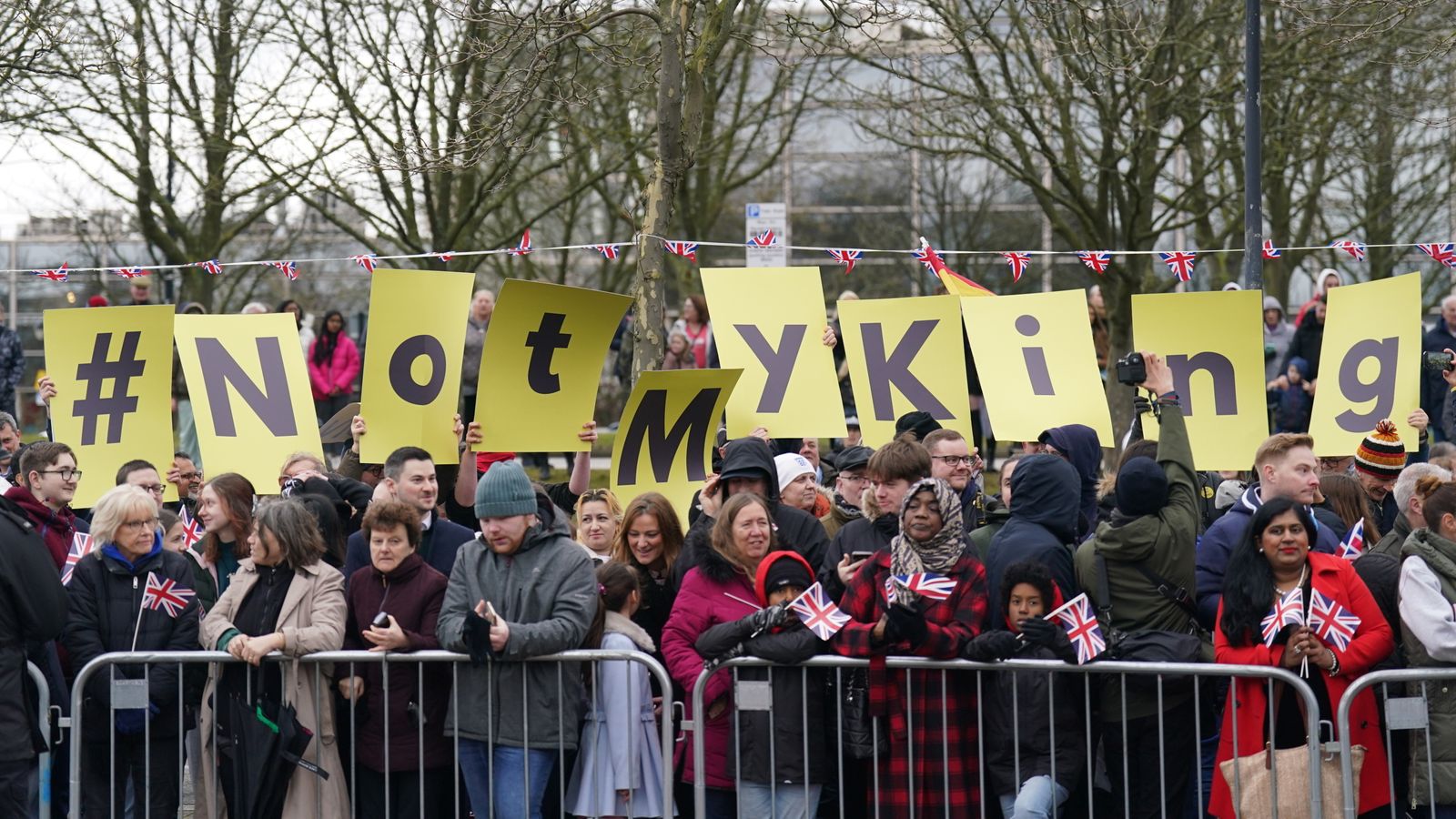The King faced a group of anti-monarchy demonstrators during a visit to Milton Keynes – but their protests were met with chants of “God save the King” from much larger crowds assembled to greet the monarch.
He had travelled there after it was awarded city status in August 2022 as part of the late Queen’s Platinum Jubilee celebrations.
The 74-year-old monarch went to Milton Keynes alone after the Queen Consort tested positive for COVID at the beginning of the week.
As he arrived at a church in the city centre to meet community representatives, the King went on an impromptu walkabout to shake hands with members of the 300-strong crowd who lined the crash barriers.
A group of around 20 anti-monarchists held up signs spelling out #NotMyKing, and one protester shouted “Why are you wasting money on a coronation Charles?”
At this point, members of the public began singing “God save the King” which drowned out other comments.
Graham Smith from Republic, which campaigns for an elected head of state, was part of the protest and said it was aimed at raising awareness for a larger demonstration his organisation is planning for the coronation.
He said: “Everything has changed with the Queen gone and Charles on the throne. He hasn’t inherited the deference and sycophancy that was around the Queen, and we’ve just had a new head of state without anybody being asked.”
Republic has said that it intends to protest in Parliament Square during the coronation ceremony on 6 May as the royal procession passes through on its way to Westminster Abbey.
Read more:
Queen Consort Camilla has tested positive for COVID-19, Buckingham Palace says
Student pleads not guilty to threatening behaviour after eggs thrown at King
Man fined for throwing egg towards King Charles during walkabout
During his visit to the Church of Christ the Cornerstone, the King met representatives from many aspects of Milton Keynes life, including arts and religion, the natural world, young people and business.
In his speech, the King said that Milton Keynes “is a name, as we know, that evokes the memory not only of one of our greatest poets, but also of one of our greatest economists. It is that fine combination of lyricism and practical realism which marks out Milton Keynes today”.
After the event, the King went on a brief walkabout when he left, and talked to well-wisher Tazmin Farrington, telling her that his wife was “getting better”.








